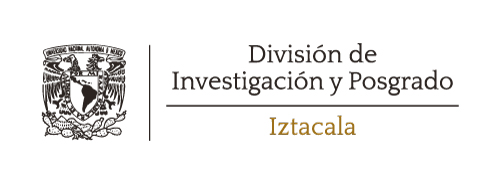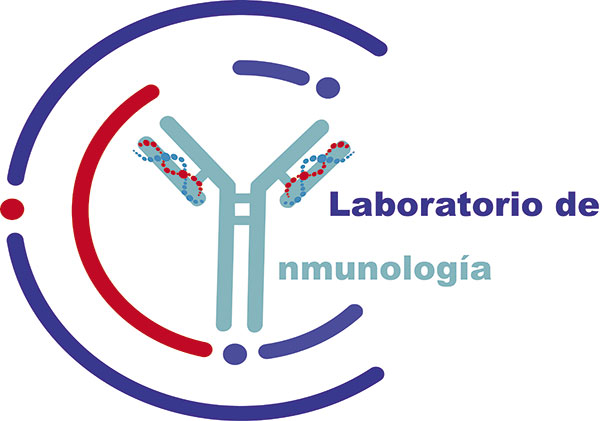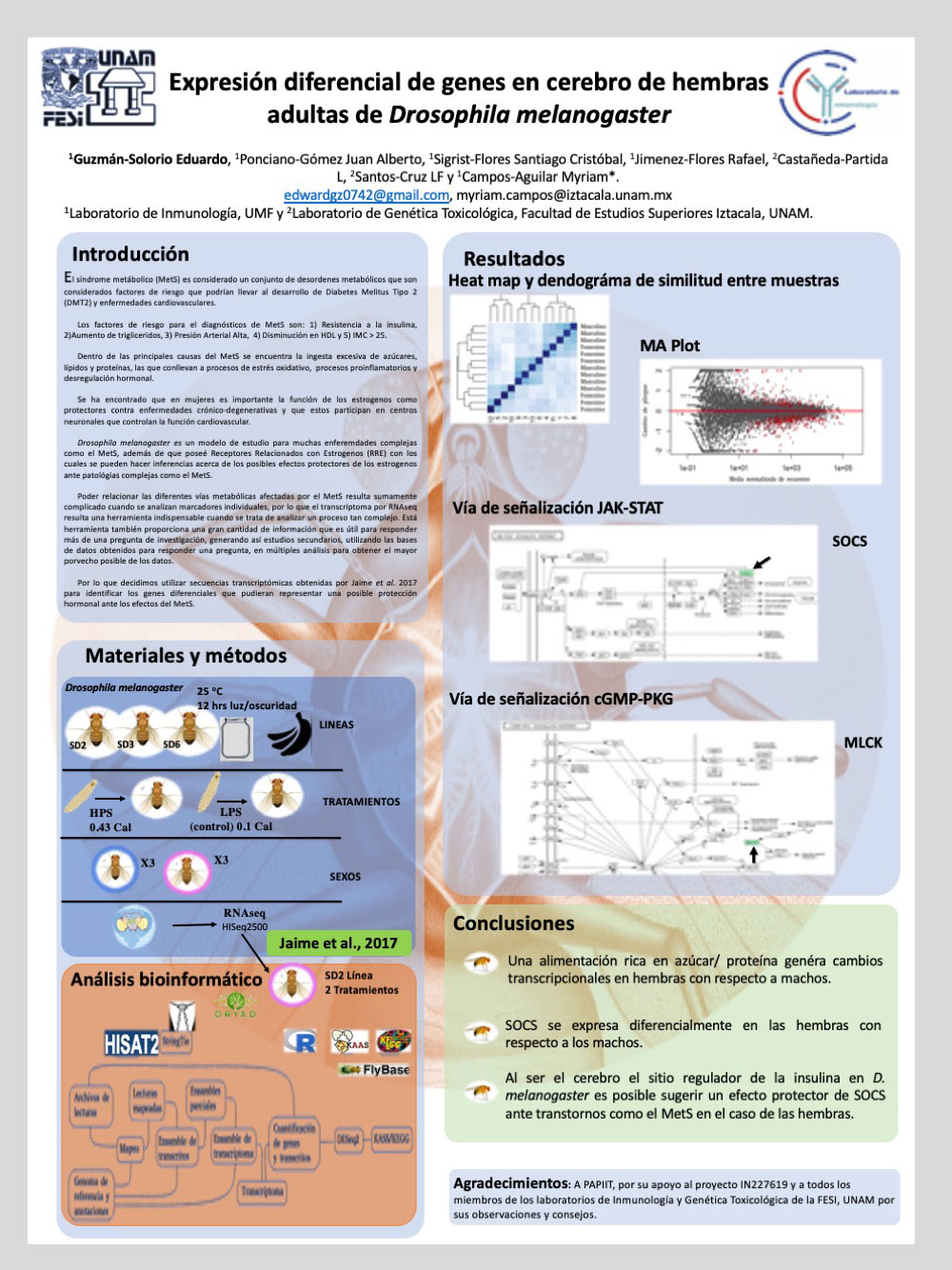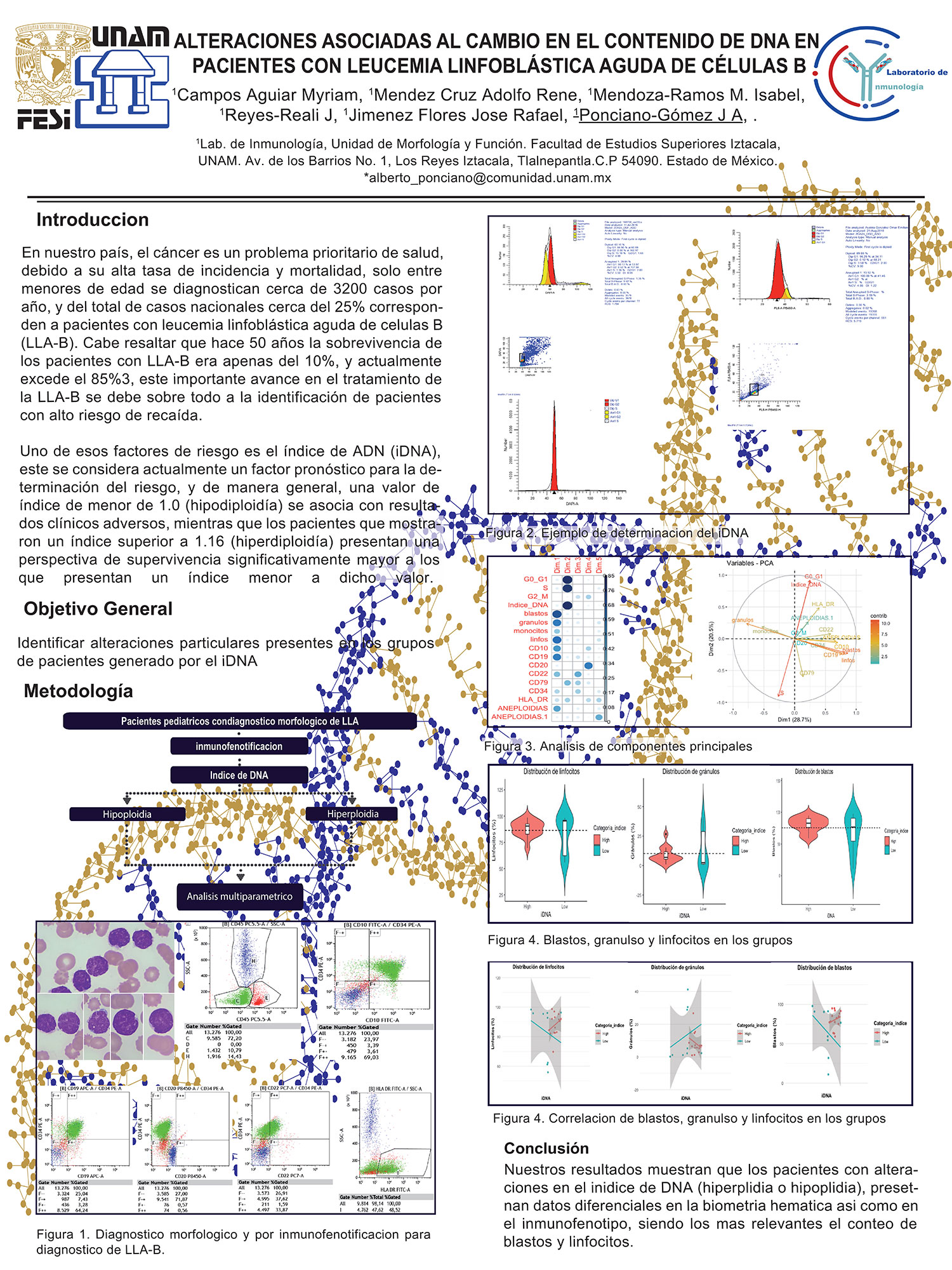
| Location within campus: | Laboratory 7, Unidad de Morfología y Función |
| Phone: | 55 56231220 |
| Head of Laboratory: | Sc. D. José Rafel Jiménez Flores Full Professor jrjf@unam.mx |
| Researchers affiliated to the laboratory: | Sc. D. Juan Alberto Ponciano Gómez alberto_ponciano@comunidad.unam.mx. MSc Myriam Campos Aguilar myriam.campos@iztacala.unam.mx |
| Technicians affiliated to the laboratory: | Sc. D. Santiago Cristobal Sigrist Flores sigrist_fsc@hotmail.com |
| Research lines per researcher: | Effect of a diet enriched in fat (palmitic acid) and sugars (fructose) on health. Animal models of overfeeding (rabbits and Drosophila). Search for diagnostic and prognostic markers in patients with acute lymphoblastic leukemia. Bioinformatics and programming applied to genomic and transcriptomic analysis and to biological databases. |

The obesity rate in young Latinos has increased rapidly from 6.5 to 20% in the last 30 years, mainly due to overnutrition and increased sedentary behaviors, making young Latinos one of the populations most prone to developing the syndrome metabolic and related diseases. Obesity in early stages of life is a risk factor for the development of chronic diseases, such as cardiovascular disorders and diabetes.
Our work is focused on the search for biochemical and molecular alterations in animal models (rabbits and Drosophila) supercharged with palmitic acid and fructose using molecular tools (rt-PCR, PCR and massive sequencing). Acute lymphoblastic leukemia (ALL) is the most common type of pediatric cancer, and despite the fact that great advances have now been made in its treatment, reaching a remission rate of up to 90%, as opposed to the 10% reported achieved just 50 years ago, this advance is largely due to the advance in the establishment of markers for diagnosis and prognosis, which is why the use of tests that allow us to identify the most likely alterations to occur is important. Our work seeks to identify genetic (mutation, translocation and ploidy) and cellular (surface molecules) markers using flow cytometry and molecular biology tools (rt-PCR, PCR and massive sequencing).

Sigrist-Flores SC, Ponciano-Gómez A, Pedroza-González A, et al. Chronic intake of moderate fat-enriched diet induces fatty liver and low-grade inflammation without obesity in rabbits. Chem Biol Interact. 2019. doi:10.1016/j.cbi.2019.01.004
Alegría-DÍaz A, Valdez-Ortiz R, Murguía-Romero M, et al. Clinical Significance of Serum Uric Acid Levels in Mexican Young Adults. In: Contributions to Nephrology. ; 2018. doi:10.1159/000484287
Ponciano-Gómez A, Martínez-Tovar A, Vela-Ojeda J, Olarte-Carrillo I, Centeno-Cruz F, Garrido E. Mutations in TET2 and DNMT3A genes are associated with changes in global and gene-specific methylation in acute myeloid leukemia. Tumor Biol. 2017. doi:10.1177/1010428317732181
Cervantes-Anaya N, Ponciano-Gómez A, López-Álvarez GS, et al. Downregulation of sorting nexin 10 is associated with overexpression of miR-30d during liver cancer progression in rats. Tumor Biol. 2017. doi:10.1177/1010428317695932
Murguía-Romero M, Jiménez-Flores JR, Sigrist-Flores SC, et al. Prevalence of metabolic syndrome in young Mexicans: a sensitivity analysis on its components. Nutr Hosp. 2015. doi:10.3305/nh.2015.32.1.9031

| Prospective Thesis Candidate Profile: | Our work seeks to identify genetic markers (mutation, translocation and ploidies) and cellular (surface molecules) using flow cytometry and molecular biology tools (rt-PCR, PCR and massive sequencing), in patients with acute lymphoblastic leukemia. |
| Service Social Data: | Immunological techniques with basic and clinical application. Key: 2020-12 / 63-88 Objective: To provide the student with theoretical and practical training in techniques with immunological and molecular biology foundations that allow him to face methodological research problems |



